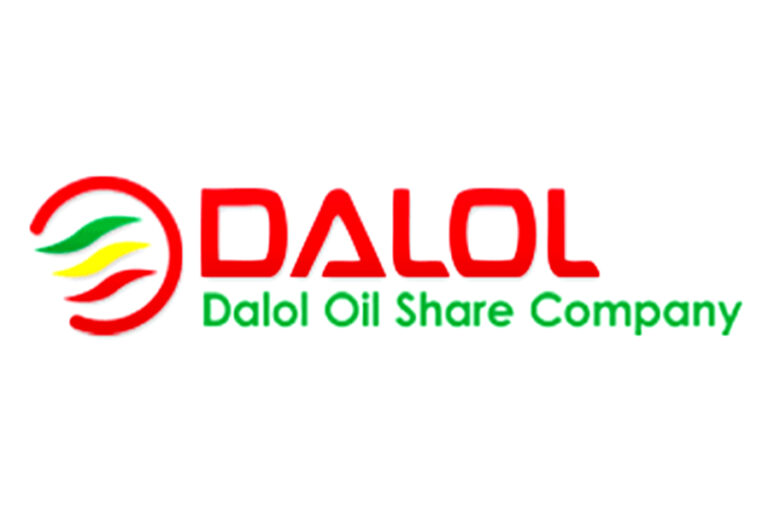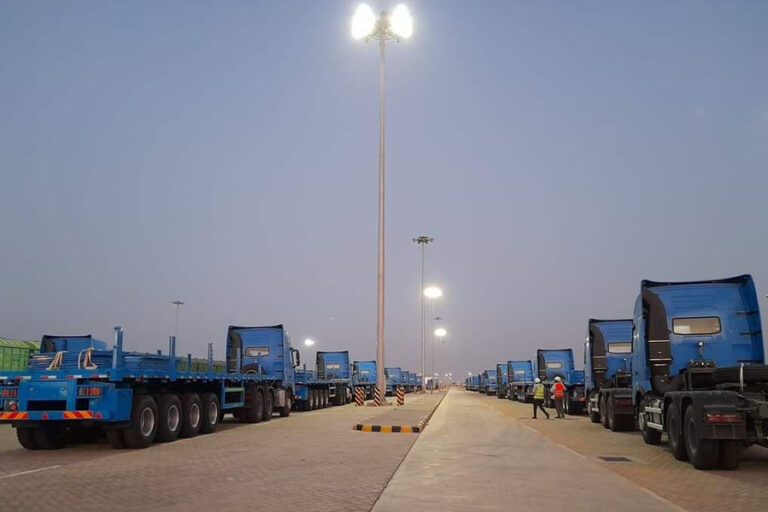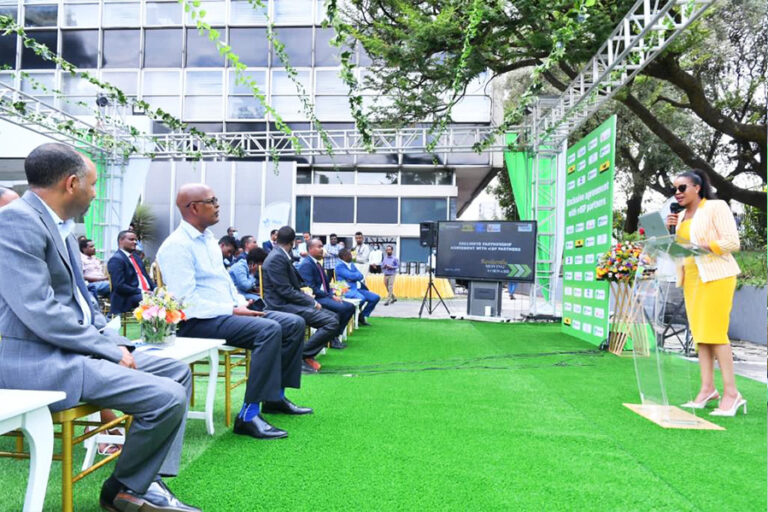Shareholders of Dalol Oil, one of the pioneers in local oil dealings, claim that a major share of the company was unlawfully taken by a foreign company. Shareholders argue that the incoming of the new company is suspicious and against Ethiopia’s business laws.
According to the claim that shareholders shared with Capital, the company called Gulf Prime Investment Plc has become the major shareholder without their knowledge.
The claim of the shareholders indicated that to elevate the financial constraints of the oil dealer, the board of directors of Dalol approved floating of un-sold shares to interested buyers.
Based on that, Gulf Prime, a company based in Dubai, UAE and oil and lubricant suppliers of Dalol have bought the said shares taking 22,348 shares worth 22.348 million birr.
As per the decision of the board, the company was invited to take the shares, at least in the settlement of two installments in a year’s time.
The board had also passed a decision that the payment should be conducted as per the country’s investment rules which means in foreign currency.
Besides that, the board directed Dalol’s CEO to handle the responsibility of verifying the required legal documents of the company and the process prior to the final endorsement of the general assembly.
However, shareholders expressed their concern that the company may not follow legal procedure to take the major share of the company as per the direction given by the former board. “I have a doubt that the company is registered as per the country’s trade laws,” one of the shareholders, who demands anonymity told Capital.
The board chaired by Tadesse Bekele, with the inclusion of a few members from the former board of directors was assigned in late 2021.
Shareholders argued that by now Gulf Prime should settle the total share amount, which is over 22 million birr, “but we have been informed by management of Dalol that the company so far settled nine million birr.”
They added that despite the share sales being supposed to be conducted in foreign currency, a confirmation on which currency was used was not cleared up.
They added that there is a conflict of interest between the local company and the new major shareholder; since Dalol is aligned with the new major shareholders who supply lubricants and oils, “we have also concerns regarding the supply, whether it is managed under competitive bidding manner or not,” shareholders described their confusion on the matter.
Sources said that if Gulf shall fully pay the whole amount of the shares offered, the company stands to take one-third of the stake at the company which makes it by default a quorum for the general assembly.
As per the information Capital obtained from the Ministry of Trade and Regional Integration, Gulf Prime Investment registered on August 24, 2020, at Kirkos Sub City with six million birr capital for engaging in the transport cargo trucks sector.
However, the company has also two licenses that were registered on the same date of February 21, 2020, but their status is canceled according to the data secured from the ministry’s ‘Business License Checker’ page.
The document indicated that one of the licenses registered involved the business of ‘import trade in petroleum and petroleum products and related products’ and the other license registration indicated the company’s involvement in Ethiopia is quoted as ‘wholesale trade in solid, liquid and gaseous fuels and related products’.
According to the country’s investment law a foreign company that would like to invest in Ethiopia should transfer at least USD 200,000 as initial investment capital.
“If a foreign company would like to invest jointly with local companies the initial amount that flows to the country shall be USD 150,000,” Daniel Getnet, legal advisor and foreign direct investment consultant said.
He told Capital that for the Gulf Prime case, the company should have at least channeled USD 500,000 to take a share worth over 22 million birr.
Experts said that the company’s license showed that the company’s capital was six million birr, which is about USD 117,000 at the current exchange rate which is far from the required initial investment amount for a joint venture or sole investment.
Biruk Girma, CEO of Dalol Oil, rejected Capital’s request for clarification, while he insisted that the board chair is the required body to answer the case. Capital’s effort to talk to the board chair was also unfruitful.
Getu Desta, who is stated as manager on the license of Gulf Prime, told Capital that Dalol is the right body to respond about the share ownership of Gulf.
Dalol shareholders feel hoodwinked by their prime investor
Firms pump 369 mln birr into ads in the 1st quarter of 2022
According to a report released by Omni media Ethiopia, over 369.2 million birr is spent on advertisement in TV and Radio stations in the country. Of these advertisements the top ten companies in Ethiopia have paid more than 125 million birr to TV and radio stations within the past three months to push their advertisement.
Omni media monitors 35 TV and radio stations. In the past three months, these 35 stations spread 71665 spots getting 369.2 million birr in payment. TV stations take the majority share spotting 42,182 advertisements taking the chunk of 340.84 million birr while radio stations spot only 29483 advertisements getting 28.35 million birr.
Omni media from its engagement in digital marketing and media monitoring for the past three months reported that: banks, satellite TV providers, real estate companies, detergent manufacturers, telecom and soft drink producers were the most to advertise content in the top categories from January to March 2022.
Of these top ten companies, according to the report, Ethio telecom tops the list by advertising 2872 spots and paying 24.45 million birr in the three months. This figure is followed by DStv which pushed 4628 spots at a cost of 21.6 million birr while Cooperative Bank of Oromia slots in third with 1499 spots paying 15.8 million birr while Canal+ seats forth spreading 1412 advertisements paying 14.5 million birr. Another financial firm on the list is Awash Bank which pays 9.7 million birr for its 1492 advertisements for the last three months.
Commenting on the issue, the Managing Director of Omni media, Feruz Jemal stressed that even though the volume of advertisements is growing steadily, the income of stations is not as growing as much as it should. Covid and instability of the country were notable reasons for the slightly stagnating income growth.
Advertising and trade promotion is important in the Ethiopian market. Government-owned mass media outlets (radio, television, and newspapers) and privately-owned magazines, satellite television stations, newspapers, radio stations and billboards are the major means of advertising and most private media outlets run their business using their income from advertisement.
“All stakeholders should take fast actions similar to the growth of advertisements, for the sustainability of media,” recommended Feruz as he sensitized on market opportunity capitalization.
Six int’l firms line up to supply heavy trucks for ESLSE
Ethiopian Shipping and Logistics Services Enterprises (ESLSE) floatation of an additional supply of150 heavy trucks catches the eye of six international companies.
It is to be recalled that the state logistics giant issued an international tender for the procurement of the stated number of trucks for its operation from seaports to the center.
At the initial attempt, the number of interested bidders reduced than the expectation which then pushed the enterprise to refloat the bid that opened on Friday, April 15.
According to Wondimu Denbu, Deputy CEO for Corporate Service at ESLSE, this time around six bidders have shown their interest to supply trucks.
He said that a preliminary evaluation of bidders has been conducted which will then be followed by a technical team evaluation before the opening of financial documents of the companies that pass the technical process.
“The technical evaluation may take more than a week, and primarily depends on the volume of the documents,” Wondimu told Capital.
Initially, the logistics giant invited companies to supply trucks on deferredletters of credit (LC), however, only one company showed its interest to engage in this scheme.
A few weeks ago, the Deputy CEO told Capital that the second-round bidding will take place with some revisions from the former bid document.
“On the second round of bid floating we have reviewed the scheme and invited interested bidders to submit their offer on both; normal procurement procedure and deferred LC,” the Corporate Service head at ESLSE explained mid this week.
Months ago, the government through the Ministry of Transport and Logistics approved a scheme for logistics companies to get a guarantee to import trucks with a 30 percent initial installment that shall be stated as buying trucks on differed LC. As per the initiative truck operators may open LC by 30 percent of the procurement value and the balance will be settled within two years.
The government has given the guarantee for the payment that will be settled in the timeframe given by the scheme.
As a logistics operator, ESLSE has also been included in the initiative and was given the go-ahead to import up to 150 heavy trucks, even though its demand was double the approved amount.
A year ago the logistics monopoly had bought 150 Sinotruk trucks from the Chinese Jinan Sinotruk Co at the cost of 11 USD million. This company was the only interested company to participate in the early deferred LC bid that was opened a few weeks ago. However, because of low interest in the first opening ESLSE issued the second round which opened on April 8 attracting six potential competitors.
The initiative which was embarked by the Ministry of Transport and Logistics allowed 168 transport companies to import 3,200 general cargo trucks through a deferred LC.
Recently, 38 trucks that are directly bought from the Chinese manufacturer at the cost of the same winning price of last year’s bid have entered into ESLSE’s operation. According to the country procurement rule, the enterprise has a right to conduct up to 25 percent additional direct purchase from the bid winning supplier, “that is the advantage we capitalized onso as to procure additional 38 trucks, besides the 150 Sino trucks, which are already in the operation,” officials of ESLSE recently told Capital.
Currently, ESLSE has 450 operation heavy-duty trucks and the new coming 38 trucks will increase the number to 488.
Besides operating the leased trucks from private logistics companies, ESLSE is expanding the operation and number of owned trucks since the sector is more profitable and allows the public enterprise to play its part to accelerate the logistics activity that as a sector is often criticized as a challenge for doing business in Ethiopia.
Different studies indicated that Ethiopia’s logistics sector is one of the poorest compared with the peer countries. To tackle the problem the government has embarked on different policy directions and initiatives including opening the sector with at least 49 percent share for foreign operators.
Ethio telecom agrees exclusive partnership with private internet service providers
As part of expanding its business and playing its role in the digital industry Ethio telecom this week signed agreements with different companies.
On Monday April 11, 2022 Ethio telecom signed a three-year contractual agreement with five virtual internet service partners including WebSprix IT Solutions PLC, . The agreement was signed by Frehiwot Tamru and different representatives of the companies.
Based on the contractual agreement, the companies are expected to exclusively provide fixed broadband internet service by exclusively purchasing the fixed bandwidth internet service from Ethio telecom.
These days, Ethio telecom is immensely working at a high priority to avail fixed broadband internet service to the customers nationwide in partnership with virtual internet service providers.
Currently Ethio telecom has about 443k broadband customers though the private companies have been able to avail fixed broadband internet service to 20,700 customers so far.
Ethio telecom has plan to increase the number of users to 3 million by the end of 2026, and the company has designed and been executing a wide range of systems and strategies.
In parallel to this infrastructure expansion, the company has recently made a massive tariff discount on fixed broadband internet service to meet the ever-increasing customer demands for the services.
Moreover on Tuesday April 11, 2022 Ethio telecom has also signed a deal with Amhara Bank which is expected to be operational soon. The two companies agreed to use ethio telecom’s modern modular Data center.
The modular data center is said to be designed to ensure mission-critical data and equipped with extensive security and compliance system controls with 99% reliable connectivity and high electric power saving capacity.
In addition, the center is equipped with the state-of-the-art power saving electrical systems, cooling systems and security cameras as well as modern network and fiber cable enclosures/accessories and compartments.
Specifically, what makes building this modern modular data center unique is that its mission to enhance the services of all the company’s information technology and network infrastructure developments.
Currently, 84 customers are using Ethio telecoms data center.
“The data center would enable various technology products and services rendering companies to become operational in a short period of time by sharing them the data center collocation” said the Frehiwot Tamru, CEO of ethio telecom speaking at the ceremony.
“So far, our company has built two modular data centers and three more data centers are under construction that will soon have five data centers altogether. Moreover, big Green Data Center is under requirement preparation and it can host 1000 racks with geographical redundancy. To this effect, five sites are made already available outside Addis Ababa for geography redundancy equipped with its own disaster time emergency backup,” Frehiwot added.
The agreement was signed by Frehiwot Tamru, CEO of ethio telecom and Henoke Kebede, President of Amhara Bank.






